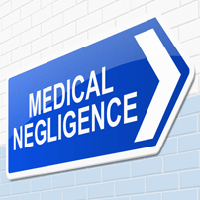Financial Incentives Do Not Improve Hospital Performance
March 5, 2019 Hospitals are constantly looking for new and innovative ways to reduce costs while improving the quality of patient care. Value-based incentive programs (VBIPs) have been used to improve quality and reduce costs by providing financial rewards to hospitals who demonstrate proven improvements, and penalties to those who do not. However, a recent study by the Boston University School of Medicine found no evidence that these programs are effective. Their study, which focused on catheter-associated urinary tract infection (CAUTI) rates in hospitals in the United States, is the first to examine the impact of these federal payment programs on healthcare-associated infections.
Hospitals are constantly looking for new and innovative ways to reduce costs while improving the quality of patient care. Value-based incentive programs (VBIPs) have been used to improve quality and reduce costs by providing financial rewards to hospitals who demonstrate proven improvements, and penalties to those who do not. However, a recent study by the Boston University School of Medicine found no evidence that these programs are effective. Their study, which focused on catheter-associated urinary tract infection (CAUTI) rates in hospitals in the United States, is the first to examine the impact of these federal payment programs on healthcare-associated infections.
The Centers for Medicare and Medicaid Services created the VBIPs in 2013 to either financially reward or penalize hospitals based on a range of quality metrics, focusing specifically on hospitals’ rates of healthcare-associated infections that were considered preventable. While earlier studies showed that these programs had little impact on factors such as hospital processes, patient experience, and mortality, their impact on patient safety metrics rates is unknown.
Study Overview
After examining the changes in trends for a range of CAUTI-related quality measures in approximately 600 hospitals in the United States, researchers at the Boston University School of Medicine and the Harvard Pilgrim Health Care Institute found no evidence that VBIPs were associated with a reduction in device-associated CAUTI rates in critical care units of hospitals. According to one of the study authors, there were some notable improvements to urinary catheters in the critical care units in hospitals across the country. In addition, hospital patients experienced a decreased risk of urinary tract infections. However, there was no evidence that the VBIPs were effective at motivating hospitals to engage in additional prevention efforts.
According to the researchers, the results of the study have an important impact on public health in that they present critical information about whether federal payment plans are effective and whether they should continue. These programs require a significant amount of time and money to implement and maintain. Researchers hope that the results of the study will encourage policy makers to recognize the limitations of the program and consider revising it before making plans to expand.
If a patient contracts a CAUTI, or any other healthcare-associated infection, while under the care of a healthcare professional, they may want to consider filing a medical malpractice lawsuit. A skilled medical malpractice lawyer can address all your concerns and ensure that your legal rights are protected.
Baltimore Medical Malpractice Lawyers at LeViness, Tolzman & Hamilton Represent Victims of Hospital-Acquired Infections
If you or a loved one became ill after developing an infection at the hospital, it is in your best interest to contact the Baltimore medical malpractice lawyers at LeViness, Tolzman & Hamilton as soon as possible. We will conduct a thorough investigation into your case and determine who is responsible for your illness. Our experienced legal team will secure the maximum financial compensation you deserve and ensure that your rights are protected. We will not stop fighting for you until justice has been served. To schedule a free, confidential consultation, call us today at 800-547-4LAW (4529) or contact us online.
Our offices are located in Baltimore, Columbia, Glen Burnie, and Towson, allowing us to represent medical malpractice victims in Maryland, including those in Anne Arundel County, Baltimore County, Carroll County, Harford County, Howard County, Montgomery County, Maryland’s Western Counties, Prince George’s County, Queen Anne’s County, Southern Maryland, and the Eastern Shore, as well as the communities of Catonsville, Essex, Halethorpe, Middle River, Rosedale, Gwynn Oak, Brooklandville, Dundalk, Pikesville, Nottingham, Windsor Mill, Lutherville, Timonium, Sparrows Point, Ridgewood, and Elkridge.






